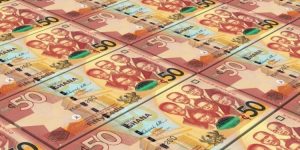 The National Petroleum Authority, NPA, says it is committed to ensuring that the rules of petroleum product pricing and deregulation are adhered to.
The National Petroleum Authority, NPA, says it is committed to ensuring that the rules of petroleum product pricing and deregulation are adhered to.Oil Marketing Companies and regulators have often been accused of dragging their feet when fuel prices ought to go down at the pumps after reduced crude prices on the international market, but are quick to increase when the price goes up.
The NPA has hinted of a possible 15 percent reduction in fuel prices by March 15,2020, when the next pricing window is expected.
This comes after a price war between Russia and Saudi Arabia plummeted crude oil price by 30%.
Interest groups like the Chamber of Petroleum Consumers, COPEC, the Institute of Energy Security, IES, and the opposition National Democratic Congress, have called for immediate reduction in fuel prices at the pumps, but the NPA’s CEO, Hassan Tampuli, says this will happen automatically through the petroleum product pricing and deregulation.
“Let me also put it on record, that but for the intervention of the government, Ghanaians would have been paying far more than they’re paying right now. On 7th January when Nana Akufo-Addo took office, the total price build-up consisted of over 40% taxes, levies, and margins, today that is 14% less, we’re doing 26%, and this has denied the government about 1.2 billion Ghana cedis, and that’s what the President has given to the Ghanaian people.”
Mr. Tampuli added that the government has been more prudent in its handling of the petroleum sector and that any attempts by critics to downplay their efforts would be disingenuous.
“So if we talk about a government that’s responsive to the needs of the people of this country, what the President is able to do in terms of the taxes he has done so. And when it comes to the competent management of the cedi, it is there for all to see. So when prices go up on the international market, Ghanaians will pay accordingly, so now that the prices are coming down, nobody will tell the OMCs or the NPA or government that the prices should come down; it will come down naturally”.
He added that, “The industry people themselves understand that the prices have to go down because there’s a reduction in the price on the international market; government taxes have not increased, the cedi is way stronger than the dollar, and we should get the benefit of that.”
World price slump
Oil prices saw its lowest drop since 1991 on Monday, March 9, 2020, after Saudi Arabia started a price war with Russia by slashing its selling prices and pledging to unleash its pent-up supply onto a market reeling from falling demand because of the coronavirus outbreak.
Prior to this huge slash, crude prices had been relatively stable. By this, prices are generally expected to go down significantly at the pumps, to ease pressure on consumers.
Brent crude futures fell by as much as $14.25, or 31.5%, to $31.02 a barrel. That was the biggest percentage drop since Jan. 17, 1991, at the start of the first Gulf War and the lowest since February 12, 2016. It was trading at $35.75 at 0114 GMT.
U.S. West Texas Intermediate (WTI) crude fell by as much as $11.28, or 27.4%, to $30 a barrel. That was also the biggest percentage drop since the first Gulf War in January 1991 and the lowest since February 22, 2016. It was trading at $32.61.
Saudi Arabia, the world’s biggest oil exporter, is attempting to punish Russia, the world’s second-largest producer, for balking on Friday at production cuts proposed by the Organization of the Petroleum Exporting Countries (OPEC).
Source: Citinewsroom.com







